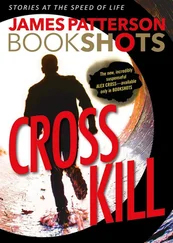With the tools hidden, Ali had asked M if they could have their wrist restraints cut because their skin was getting rubbed raw. M had done it without comment, then he gave them antibiotic ointments to dress their wounds and left, locking the door to the hallway and interior ladder behind him.
Before Ali and Diane Jenkins could start on the door, they became woozy, which made them believe that M had put drugs in their water. They decided to limit their liquid intake, but nonetheless, their ability to work was slowed.
They began with the middle hinge and the hacksaw, trying to keep the cut as inconspicuous as possible.
“We made sure everything was cleaned up way before M was supposed to come back,” Ali said. “But every time he came, we were scared he was going to see where we’d been weakening the door.”
But M did not discover what they were doing, and two days later, with the middle hinge down to two inches of quarter-inch steel, they turned to the lower bracket.
That took another two days. Cutting the upper hinge to three inches took them a day and a half. They waited for M to arrive at the usual time on the sixth morning, but he did not return until the seventh day around one a.m.
M seemed agitated, distracted; he tossed cans of food and bottles of water to them and left some two hours before he crawled out of my neighbor’s house and across the scaffolding into my attic office.
Ali and Mrs. Jenkins said that in retrospect, they probably could have escaped in that twenty-two extra hours they’d spent waiting for M to return. But they’d wanted to start the final cutting process when they knew they’d have at least a full day to drop the door and get as far away as possible from wherever they were being held.
CHAPTER 109
AT ROUGHLY THE SAME TIMEI was face to face with M in my attic office, Ali and Mrs. Jenkins began drilling into the door around the handle and locking mechanism.
Dwight Rivers had built the doors by cutting them out of the sides of railroad container cars and installing reinforced locking mechanisms so, as Ali put it, “Zombies could not break through them during the Apocalypse.”
The practical result was that they were trying to drill through three-quarters of an inch of steel plate with a household portable drill that required changing batteries and recharging constantly. Progress on the lock slowed to a crawl.
While we were waiting for doctors to give us the okay to interrogate M, Ali had picked up the blowtorch and the striker and told Diane Jenkins to turn on the gas.
Diane Jenkins, thank God, told him that a ten-year-old running a blowtorch was not happening, and over his protests she took it from him. When she’d been kidnapped, she’d had her prescription sunglasses around her neck. While not a welding mask, they’d been enough to let her work without going blind.
“You should have seen her, Dad,” Ali said. “She was scared, but once she got it lit, she started cutting like she’d done it all her life. Bottom hinge to top.”
When the top hinge broke free, she turned the torch on the gaps between the holes they’d drilled around the handle and lock. Just as the gas tank was starting to lose pressure, she completed the circle, and Ali hit the area with the hammer.
After fifteen blows, it fell out the other side, and the door dropped after it with a booming clang. In the hall beyond, they spotted the ladder coming out of the ceiling, went to it, and felt the downdraft.
Using the headlamps, they climbed and stumbled around inside Rivers’s doomsday bunker before reaching the roof and finding the same winch cable and rope Sampson and I had used to escape the anthill nearly two weeks before.
Mrs. Jenkins had balked at the idea of rappelling and told Ali she would wait for him to come back with help. He convinced her that M had to be using the rope to get in and out of the bunker and that they should get away from it as fast as possible.
“It was the most frightening thing I’ve ever done in my life, but he just kept talking me through it,” Mrs. Jenkins said.
When they were both at the bottom, they heard a vehicle and turned off their headlamps. Then they saw headlights up near a house and thought it was M returning for them.
They took off running west, crossing the meadow toward the woods. Having no idea where they were, they kept going once they reached the trees and could turn on their headlamps. They walked for an hour and a half and never crossed a road.
The forest got thicker, and the ground started to climb. Though they did not know it at the time, they were well inside Shenandoah National Park when they decided to stop and wait for daylight.
But then they heard our helicopter fly overhead and land in the meadow back toward the anthill. They heard sirens coming a few minutes later.
“We figured that was good, sirens,” Ali said. “So we started back in that direction, except once the sirens died, we couldn’t tell exactly where they’d come from.”
“That’s when the headlamps started to dim and we walked off the side of a cliff,” Mrs. Jenkins said.
I pulled back. “What?”
“Or tumbled down it,” she said. “I guess it was more like a ravine.”
“It was steep,” Ali said. “I sort of remember that.”
Mrs. Jenkins said she hit rocks and boulders in the bottom of the ravine. She felt her arm break and her lower calf smash.
Ali didn’t remember hitting the rock but he’d blacked out for a time.
“I got a new battery into my headlamp and found him,” she said. “There was a lot of blood, but he came around.”
Then it started to rain and our helicopter flew back over them.
“It went almost over our heads,” she said. “We were both yelling, but no one could hear anything.”
I wanted to say that I’d thought I’d heard Ali’s voice, which was impossible. I decided to keep that for later, between me and Ali.
Mrs. Jenkins said they had to keep moving or they’d die of hypothermia.
“Between us we had three legs,” she said.
“And one and a half heads,” Ali said, and he sniggered.
She laughed. “No, you were three-quarters of a head at least.”
They hobbled through the woods, relying on the headlamp until the rain stopped and dawn arrived.
“It got light,” she said. “And there was this rock wall, and on the other side of it, there was a path through the woods, and then the dirt road was just there.”
They hadn’t walked three hundred yards down that road when Dwight Rivers came driving by in his camper truck, heading to the hardware store to get new locks for his anthill.
“He stop right away?” I asked.
“He drove way past us, even when we were waving at him,”
Mrs. Jenkins said. “But then he hit the brakes hard and came fast in reverse.”
My son spoke up. “He said, ‘Are you Ali Cross?’ I said I was. And Mrs. Jenkins told him who she was and asked could we use his phone. He said he gave up cell phones in protest of something, I don’t know. Then he told us to get in the back of the camper, warm up, and sleep a little, and he’d drive us all the way home.”
“End of story,” Mrs. Jenkins said. “Your son is my hero, Dr. Cross.”
“Mine too, Mrs. J.,” I said.
Ali beamed. “When can the hero go home and have ice cream?”
“The doctor will decide about home, but I have a feeling Nana Mama might bring you two or three different kinds when she visits you later on.”
My son looked at Diane Jenkins in a way that spoke of the deep bond they’d formed in captivity. “Do you want to meet the real hashtag-crazy-good-stuff-my-great-grandma-says and eat ice cream?”
She laughed, glanced at me, then said, “I would, Ali. Very much.”
Читать дальше












